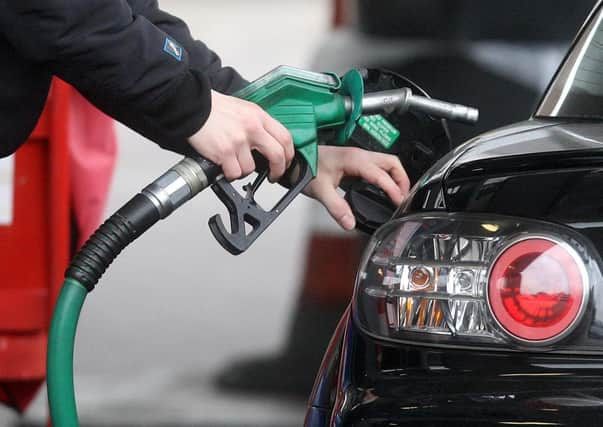Why new form of fuel would be no-brainer for the North: Matt Vickers


There is in fact a broad political consensus that exists across the House of Commons to urgently address the threat of climate change, poor air quality while supporting job creation through emerging green industries.
As the Prime Minister has been clear to point out, levelling up on jobs and economic opportunities is the cornerstone of his Premiership.
Advertisement
Hide AdAdvertisement
Hide AdAs the Co-Chair of the All Party Parliamentary Group (APPG) for British Bioethanol, I am proud to champion one policy which would deliver on all of these priorities, namely the introduction of E10 – a mix of 90 per cent unleaded petrol with a 10 per cent blend of bioethanol. This would sit alongside the E5 fuel already available at forecourts across the country.


Despite the promise of a new generation of electric and hybrid vehicles, there is still a long way to go until these new technologies deliver at a scale. There are in fact an increasing number of petrol cars on UK roads.
According to the latest figures, only 5.8 per cent of car registrations in 2020 were purely battery propelled electric vehicles, up from 1.5 per cent in 2019. But vehicles using either petrol or diesel engines still accounted for 83 per cent of new registrations.
How then can we make our roads, cities and country cleaner and greener in the short to medium term? The answer seems obvious. To introduce E10. It’s a no-brainer. E10 would deliver greenhouse gas emissions-savings equivalent to taking up to 700,000 cars off British roads.
Advertisement
Hide AdAdvertisement
Hide AdThe British bioethanol industry would be a cost-competitive means of carbon mitigation when considered in the context of transport decarbonisation, both in terms of cost per tonne of CO2 abated and also when costed against alternatives. This shouldn’t be a question of E10 or electric, but E10 and electric.
E10 wouldn’t just help the UK environment but deliver benefits for places far beyond British shores. The UK imported approximately 735,000 tonnes of soybean and 1,870,000 tonnes of soybean meal, predominantly for use as an animal feed in the agricultural sector in 2017/18.
A successful UK bioethanol industry – boosted by E10 – could assist the UK in becoming more self-sufficient in animal feed while also de-risk the potential for UK feed supply chains having an indirect impact on deforestation in other parts of the world which itself is a key contributor to climate change and degradation of important habitats.
There is also a clear economic prize at stake. Without the swift introduction of E10 – by 2021 at the latest – the British bioethanol industry will continue to decline and an industry worth £1bn could disappear forever, resulting in the loss of thousands of jobs in and around the North of England. This isn’t just speculation.
Advertisement
Hide AdAdvertisement
Hide AdIn 2018, we witnessed the loss of the Vivergo facility on the Humber, and we cannot see this repeated. The Covid-19 crisis has put additional strain on the remaining local operators like Ensus, with lockdown suppressing the demand for fuel. The introduction of E10 would demonstrate the Government means business when it comes to green businesses especially green businesses based in the North.
The economic case does not stop at what we would lose, but what we could lose. The Department for Transport promised to publish plans by the end of 2020. But as the Christmas lights were being turned on across the country, the Government left the public and the industry in the dark.
And while Rachel MacLean, the Transport Minister, provided encouraging words on E10, what we need is action and specifically a firm announcement in January or February if we are to get a well communicated and co-ordinated roll out of E10 by the end of the year.
So, let’s get on with it. Let’s see E10 introduced and ensure that the North of England is home to a world beating billion-pound bioethanol industry and the UK lives up to its environmental ambitions as we build back after Covid. It really is a no-brainer.
Matt Vickers is Conservative MP for Stockton South.
Advertisement
Hide AdAdvertisement
Hide AdSupport The Yorkshire Post and become a subscriber today. Your subscription will help us to continue to bring quality news to the people of Yorkshire. In return, you’ll see fewer ads on site, get free access to our app and receive exclusive members-only offers. Click here to subscribe.
Comment Guidelines
National World encourages reader discussion on our stories. User feedback, insights and back-and-forth exchanges add a rich layer of context to reporting. Please review our Community Guidelines before commenting.